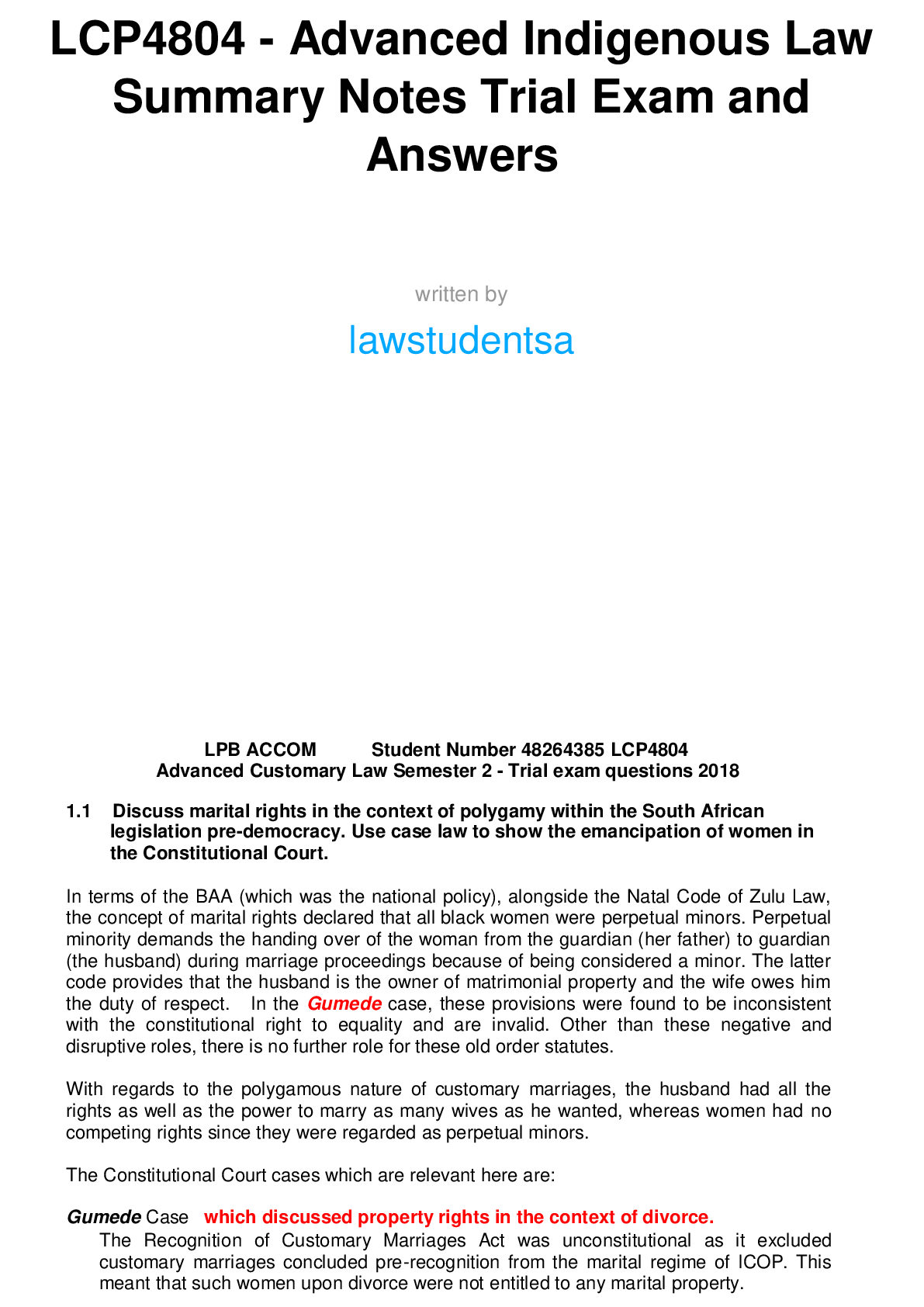LCP4804 - Advanced Indigenous Law Summary Notes Trial Exam and Answers
Course
Philosophy
Subject
Chemistry
Category
Questions and Answers
Pages
20
Uploaded By
ATIPROS
Preview 1 out of 20 Pages

Download all 20 pages for $ 11.00
Reviews (0)
$11.00
